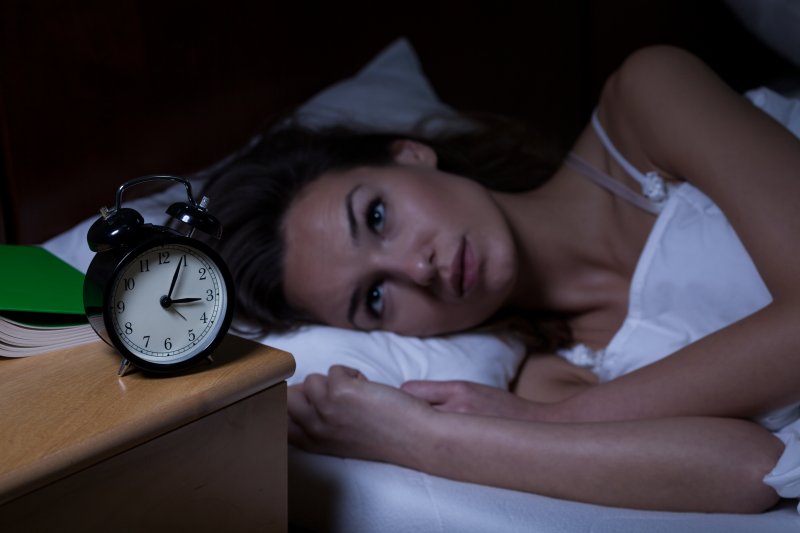
Do you regularly toss and turn at night? Are you frequently waking up throughout the night for no reason? Is it hard to fall asleep because of your endless train of thought? If you answered, “yes,” you may have insomnia – a common sleep condition that affects millions of people. It’s also possible that sleep apnea may be making the situation worse. Although it can be frustrating to live with, it doesn’t have to rule your daily life, especially if you can figure out the reason behind it. Read on to discover the cause of insomnia and what you can do to improve your symptoms.
What Can Cause Insomnia?
Since insomnia can be tied to OSA, some of the most obvious reasons it occurs might include:
- Stress, as it can keep you up at night thinking about everything from work, school, money, health, and family.
- Frequent traveling, especially if you are entering different time zones. This can affect your circadian rhythm, making it difficult to fall asleep at what would be your normal bedtime.
- An insufficient sleep environment that includes bright lights, loud noises, screens, or uncomfortable room temperature.
- Eating late at night, as it can potentially cause indigestion, heartburn, etc.
- Depression or anxiety that can keep you up at night thinking about worst-case scenarios.
- Obstructive sleep apnea that inhibits your ability to breathe freely because of obstructions that occur throughout the night.
- The consumption of alcohol or caffeine before bed, as they are stimulants. Even if you do fall asleep, you may not enter deep sleep but instead wake up more often.
Insomnia & Sleep Apnea: What is the Connection?
Insomnia is commonly viewed as a sign of sleep apnea, specifically obstructive sleep apnea (OSA). However, the two conditions are quite similar, even bearing their own acronym for those who live with both – COMISA or comorbid insomnia and obstructive sleep apnea.
It’s believed that 50-60% of individuals who have OSA also have insomnia, and vice versa. If you think about what happens during an OSA episode, obstructed breathing causes the body and brain to wake up and breathe. This frequent occurrence can make falling asleep increasingly difficult, resulting in insomnia.
Another commonality between the two is their shared symptoms:
- Poor cognitive response
- Continually fatigued, even after getting sufficient rest
- Irritability
- Lack of sleep
- Excessive sleepiness throughout the day
What Kind of Treatment is Available?
Whether it’s insomnia, obstructive sleep apnea, or both that you’re dealing with, seeing a sleep expert about your symptoms is paramount if you want to improve your quality of life.
After a formal sleep study and diagnosis, you can begin to undergo treatment with CPAP therapy or a custom oral appliance. These can help address OSA, which will also reduce your chances of experiencing insomnia night after night.
You might also be encouraged to adopt healthier lifestyle habits, such as turning off screens hours before bedtime, installing blackout curtains, keeping your room cool at night, avoiding caffeine and alcohol right before bed, and sticking to a normal sleep schedule.
Once you begin to incorporate these techniques and treatments into your daily life, you’ll begin to notice a dramatic difference in the quality of sleep you achieve.
About the Practice
At Star Sleep & Wellness in Frisco, our specialists are here to make sure you get essential rest to live your best life. No matter what kind of sleep condition you are experiencing, we are equipped and trained to deliver effective solutions that improve symptoms, help you breathe freely, and get a full night’s rest. If you struggle to fall asleep at night, contact us to schedule a consultation today.
